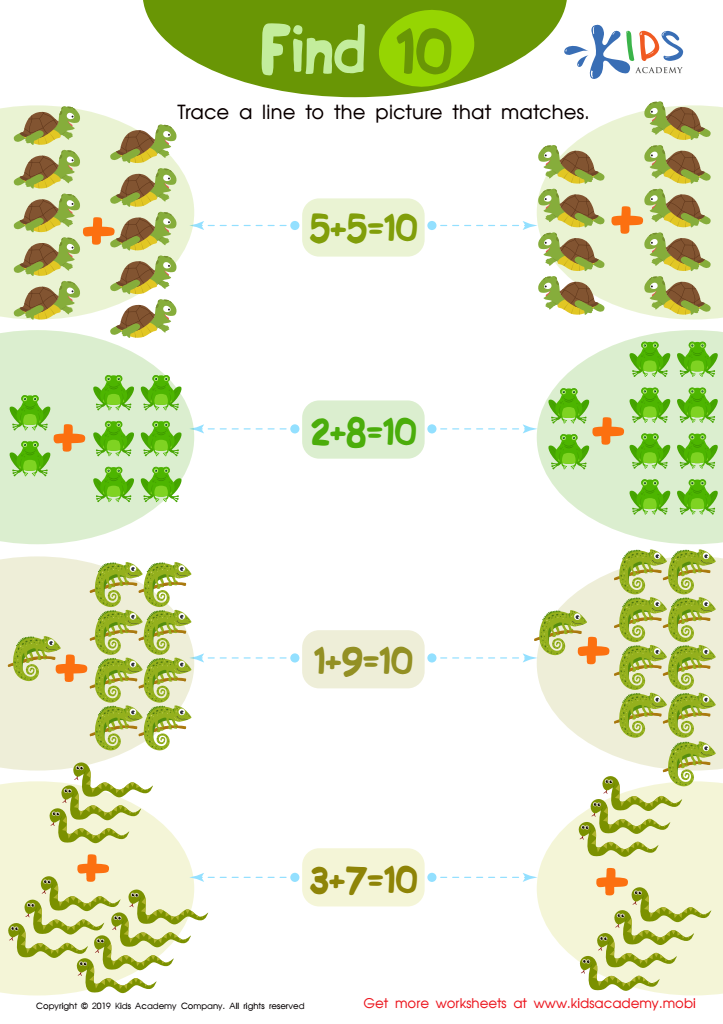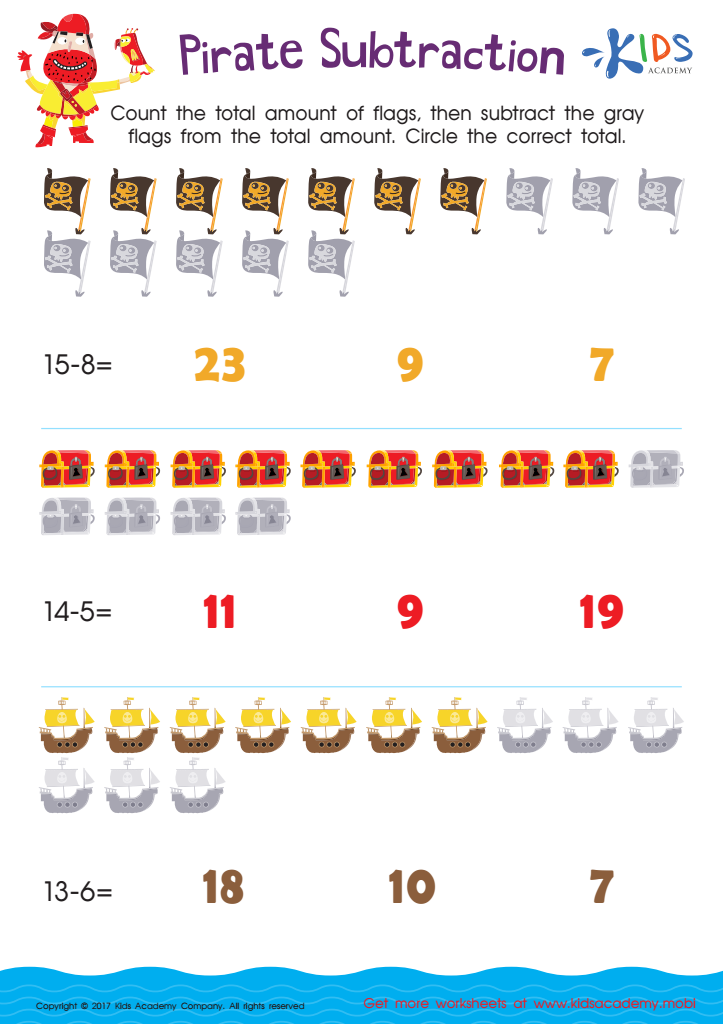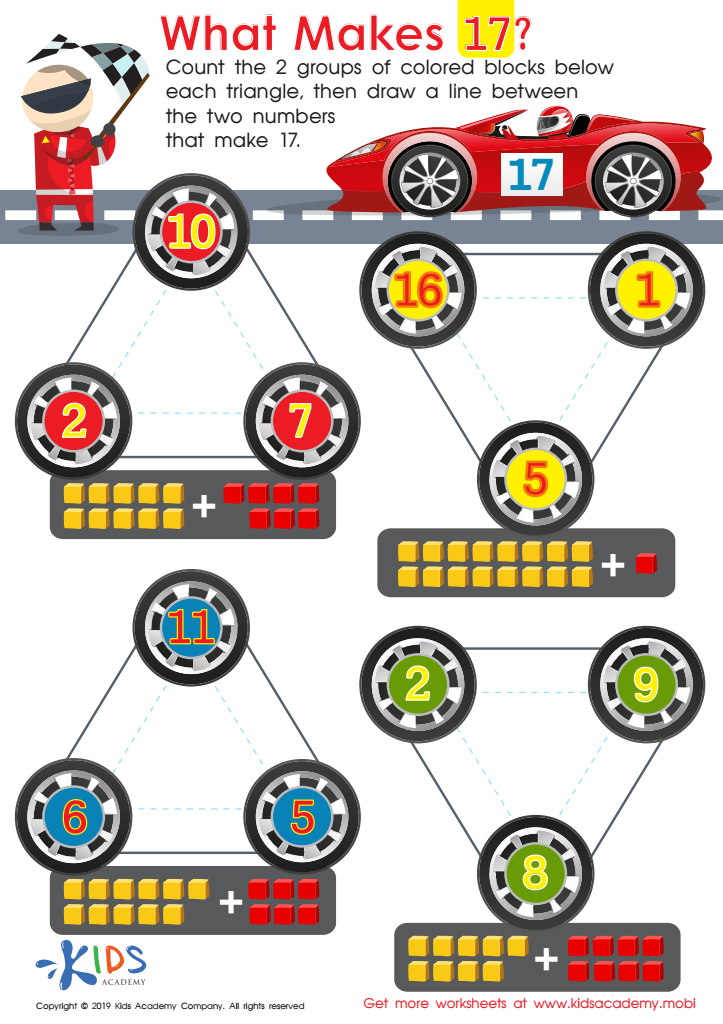Mathematical thinking Extra Challenge Addition & Subtraction Worksheets for Ages 4-8
3 filtered results
-
From - To
Boost your child's mathematical skills with our "Mathematical Thinking Extra Challenge Addition & Subtraction Worksheets" designed for ages 4-8! These engaging and stimulating worksheets encourage young learners to explore addition and subtraction concepts through fun and challenging problems. Each activity is thoughtfully crafted to enhance critical thinking, problem-solving, and numerical reasoning while keeping children engaged and motivated. With various levels of difficulty, these worksheets cater to different learning paces, making them perfect for both classroom and homeschooling settings. Equip your child with essential math skills and a love for learning as they conquer these exciting math challenges! Unlock their potential today!


Find 10 Worksheet


Pirate Subtraction Substraction Worksheet


What Makes 17 Worksheet
Mathematical thinking, especially in the area of addition and subtraction, is crucial for children aged 4-8 as it lays the foundation for future learning and problem-solving skills. Engaging in Extra Challenge activities helps to develop and strengthen these essential abilities, promoting not just rote memorization but a deeper understanding of mathematical concepts.
Parents and teachers should care about nurturing mathematical thinking during these formative years because it encourages logical reasoning and critical thinking. By incorporating challenging addition and subtraction problems, children learn to approach problems systematically, fostering resilience and adaptability when faced with challenges. Additionally, strengthening these skills early on enhances their confidence in handling more complex mathematics in later grades, preventing future math anxiety.
Moreover, collaborative activities involving mathematical challenges can enhance communication skills and teamwork, as students often discuss strategies with their peers. This collaboration can lead to a richer learning experience and deeper understanding of mathematical principles. Ultimately, prioritizing Extra Challenge activities shows children the relevance of math in everyday life, preparing them not just for academic success, but for real-world applications throughout their lives. By investing time in developing these foundational skills, parents and teachers equip children with the tools they need for lifelong learning and problem-solving.
 Assign to My Students
Assign to My Students




















